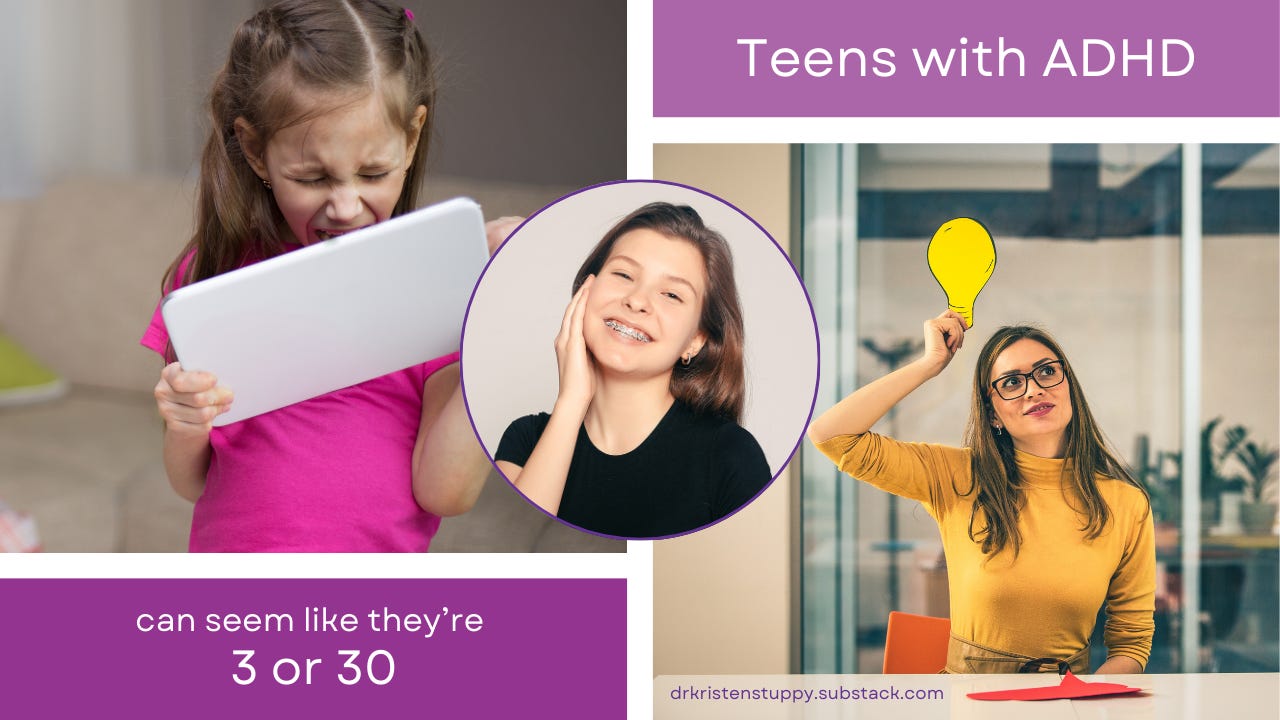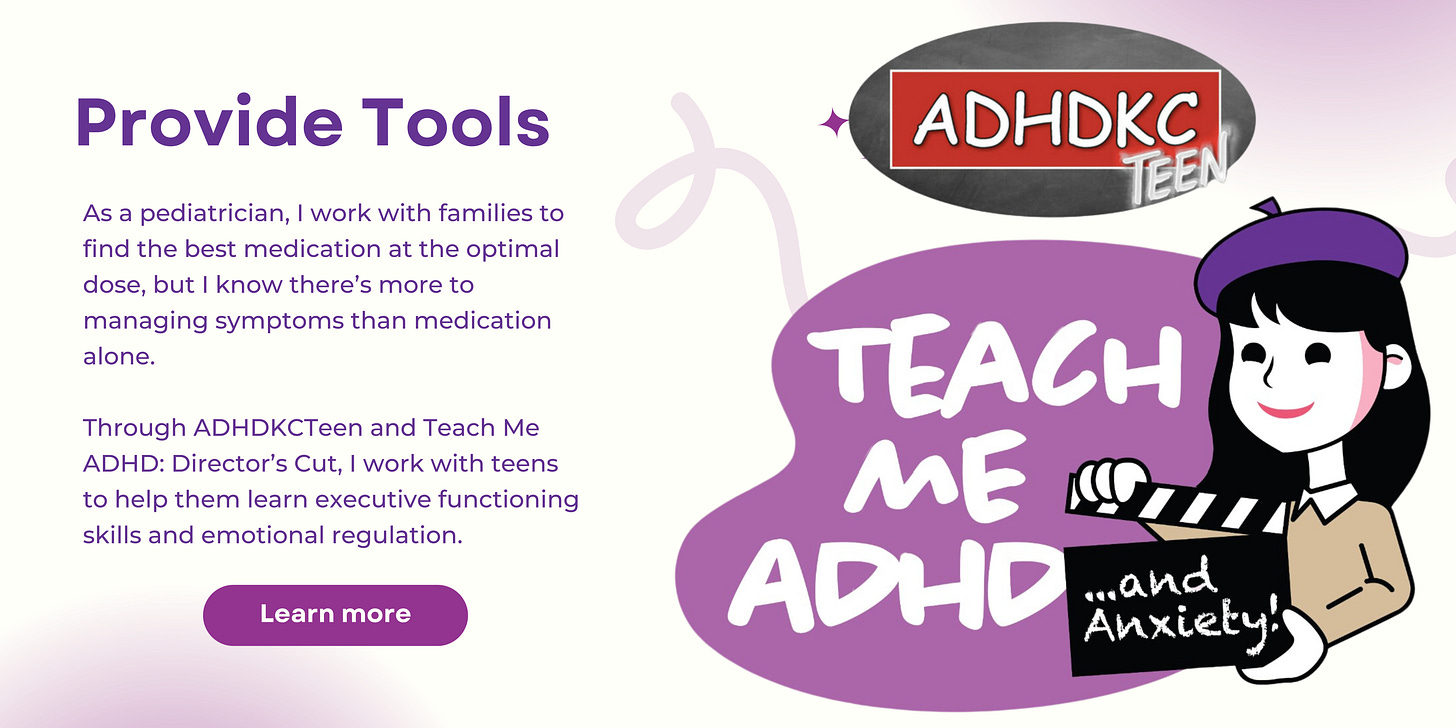Teens with ADHD Can Seem Like They're 3 or 30
Why Some Skills Are Behind While Others Are Advanced
When my daughter was growing up, she exemplified the complexities of ADHD: excelling in some areas while struggling in others. She was incredibly bright, able to engage in adult-level conversations during her teen years (and sometimes even earlier). Yet she needed support in ways typical of much younger children — like being reminded to brush her teeth and other necessary self-care tasks — well into her teens.
At one point, I worried she might not be ready to move out and survive after high school, so we explored gap year programs. However, during her senior year, she matured significantly and went on to thrive in college.
Her experience is far from uncommon.
Children with ADHD often challenge traditional developmental norms. They may lag behind their peers in certain skills while outpacing them in others. This mix of strengths and struggles can be both frustrating and inspiring for parents, educators, and caregivers. Despite the frustrations, early challenges can lay the groundwork for resilience and determination when children are taught the executive functioning skills they need to succeed.
Understanding how the brain develops and finding ways to support children as they grow can empower them to become healthy, capable, and well-adjusted adults.
The ADHD Brain: A Unique Operating System
ADHD affects executive functioning skills. These skills include planning, time management, and emotional regulation. They are critical for tasks such as following multi-step instructions, staying organized, or managing emotions during conflicts. However, the ADHD brain also tends to thrive on creativity, hyperfocus on areas of interest, and out-of-the-box problem-solving.
Common Areas of Delay
Children with ADHD often lag behind peers in these areas:
Emotional Regulation
Emotional outbursts and difficulty calming down are common and often not considered as part of ADHD. A child might feel emotions intensely but lack the tools to process them constructively. Your teen might even throw a fit like a toddler.Time Management and Organization
Forgetting assignments, losing items, or procrastinating are frequent struggles due to underdeveloped executive functioning skills. This leads to problems at home, school, and extra-curricular activities.Social Skills
They may interrupt conversations, miss social cues, or struggle to maintain friendships, making peer relationships a challenge. Developing friendships can be especially challenging for kids with ADHD.
Areas of Advanced Skills
On the flip side, children with ADHD often excel in wonderful ways:
Creativity and Innovation
Many children with ADHD are natural creators. They think outside the box, offering unique solutions to problems that others might not see. This can lead to success in the adult world if they learn to cultivate these skills over time.Passion and Intensity
When interested, their ability to hyperfocus allows them to dive deep into a subject, mastering it far beyond their years. Again, this passion can lead to becoming leaders, creators, and innovators in life.Empathy and Intuition
Despite struggles with social interactions, many children with ADHD have a strong sense of empathy, often connecting deeply with the emotions of others.
How to Support Their Growth
We all want our kids to be their best. Encouraging their strengths while supporting their needs can help them thrive.
Celebrate Their Strengths
Highlight and encourage their natural talents, whether in art, science, music, or storytelling. This can build self-confidence - learn more in a recent Substack:
Provide Tools for Challenges
Use visuals, timers, and checklists to help them manage time and stay organized. Consider therapy for emotional support. Work with their physician to determine if medication would be beneficial for their symptoms and optimize dosing as needed.
Focus on Progress, Not Perfection
Recognize that they’re developing at their own pace. Celebrate small wins, whether it's completing a task independently or showing improved emotional control.Be Their Advocate
Work with teachers, coaches, and other adults in their lives to create a supportive environment that values their individuality. Help them learn self-advocacy skills as they grow.
Final thoughts
Children with ADHD often experience life at the extremes — struggling in some areas while flourishing in others. Recognizing and embracing this uneven developmental pattern allows us to help them reach their full potential.
With the right support, these children can thrive, turning their challenges into opportunities and their strengths into superpowers.
💬 Do you have a child with ADHD? Share your experiences in the comments — I’d love to hear how you’re supporting their growth!







